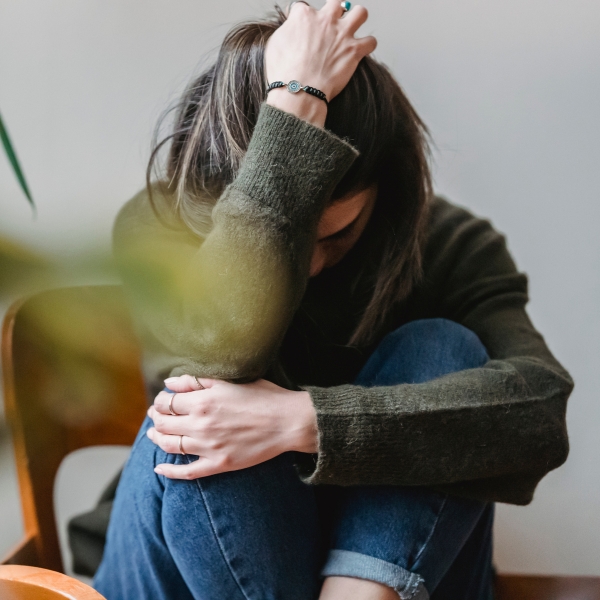How Anxiety Can Fuel Substance Abuse — and How to Treat Both. Struggling with anxiety and wondering why it feels even harder to cope sometimes? You’re not alone—and understanding the connection between anxiety and substance use can be a total game-changer. In this post, you’ll discover why the two often go hand in hand and how to break the cycle with real, effective strategies. You’ve got the power to take back control—and we’re here to guide you every step of the way!
This article, “How Anxiety Can Fuel Substance Abuse — and How to Treat Both,” is intended for general informational purposes only and is not a substitute for professional medical, psychological, or therapeutic advice. Everyone’s situation is unique, and it’s important to consult with a licensed doctor, mental health professional, or addiction specialist who can assess your specific needs and provide personalized guidance. If you or someone you know is struggling with anxiety, substance use, or both, please seek professional help. Your well-being matters and support is available.
How Anxiety Can Fuel Substance Abuse
Addiction and anxiety disorders frequently co-occur, forming a problematic cycle that is hard to break. If you are living with anxiety disorders, you might turn to drugs or alcohol to numb your anxiety symptoms. Treatment approaches often vary among generalized anxiety disorder and other anxiety disorders.
This creates a pattern where substance use intensifies symptoms of anxiety over time, often leading to a greater reliance on substance abuse for relief. Understanding this convoluted link is vital to developing effective treatment strategies that address both the root of anxiety and the resulting substance use disorder.
The Connection Between Addiction and Anxiety
Anxiety and addiction disorders result in a toxic relationship that feeds each other and affects both your mental and physical health. This connection is not just behavioral; it’s also biological, influencing the brain’s reward and stress systems.
Over time, this situation magnifies both anxiety and addiction, making recovery more difficult without the proper support. The Mental Health Services Administration and the National Epidemiologic Survey have emphasized the urgent need to treat co-occurring disorders. Research aims to identify risk factors for developing lifetime alcohol use disorders.
Common Anxiety Disorders Linked to Drug and Alcohol Dependence
Several anxiety disorders and substance use disorders frequently appear together.
- Generalized Anxiety Disorder: You may feel persistent worry and tension without any apparent cause, prompting attempts to self-medicate.
- Social Anxiety Disorder: Intense fear of being judged in social situations. Drinking alcohol is a common escape, but this only leads to alcohol abuse.
- Panic Disorder: Recurring panic attacks may drive you to use drugs to avoid the terrifying physical sensations.
- Posttraumatic Stress Disorder: Trauma survivors often turn to substances to numb emotional pain.
- Obsessive-Compulsive Disorder: The compulsions and anxiety may lead you to seek relief through addictive behavior.
Each of these conditions comes with its own set of challenges. However, co-occurring anxiety and substance use issues can compound your symptoms, making early intervention critical.
Drug Abuse and Co-occurring Mental Disorders
A standard behavior among individuals with mental health disorders is using substances to cope. This is known as self-medication, where you might rely on drugs or alcohol to suppress anxiety symptoms temporarily. Unfortunately, this practice worsens both the addiction and the underlying mental illness.
Whether you’re dealing with alcohol dependence, drug abuse, or prescription medications, using these substances to manage your psychological symptoms is risky. Substance use may initially dull your symptoms, but over time, it often intensifies the withdrawal symptoms and alcohol withdrawal phases.

Risk Factors for Co-Occurring Anxiety Disorders
Several risk factors contribute to the development of both anxiety disorders and addiction. Environmental factors, such as exposure to trauma or chronic stress, can increase vulnerability. Common risk factors also include genetic predispositions and early childhood experiences.
Gender-related symptoms may also play a role, with women often experiencing higher rates of specific anxiety disorders and men being more likely to develop alcohol use disorder.
Anxiety and depression often co-exist, creating a complex interplay of symptoms. Individuals with anxiety disorders may be at increased risk of developing depressive disorders and vice versa.
The Diagnostic Challenges of Co-occurring Disorders : How Anxiety Can Fuel Substance Abuse
Diagnosing co-occurring anxiety disorders and substance use disorders is a challenge for healthcare professionals. The Diagnostic and statistical manual provides guidelines, but overlapping symptoms tend to blur the lines.
For example, anxiety caused by drinking alcohol might mimic panic disorder, and alcohol withdrawal can resemble generalized anxiety disorder. Understanding which disorders commonly co-occur can improve intervention strategies
Co-occurring disorders can complicate the course and treatment outcome of anxiety sensitivity and addiction. Accurate diagnosis is crucial for effective treatment planning and effective treatment outcomes.
Recognizing the Anxiety Symptoms That Lead to Substance Use Disorder
It’s not always easy to tell where one disorder ends and the other mental health disorder begins. Here are some signs that you may be experiencing comorbid anxiety disorders and substance abuse disorders:
- Needing alcohol or drugs to “take the edge off” or calm down
- Feeling anxious, irritable, or panicked when you don’t use substances
- Using substances more often than you planned
- Experiencing withdrawal symptoms like sweating, shaking, or nausea
Treatment Options for Anxiety Disorders and Substance Abuse
Integrated treatment is essential to treat both anxiety and addiction effectively. This means that both conditions are addressed simultaneously by a dedicated team. Treating co-occurring disorders involves a combination of the following:
- Cognitive behavioral therapy that helps you reframe anxious thoughts and reduce addictive behaviors
- Medication for anxiety, addiction, or both – administered under close supervision
- Group therapy for shared experiences and peer support
- Substance abuse treatment programs tailored to your needs
How Anxiety Can Fuel Substance Abuse
Treatments must consider your physical, emotional, and psychological health for lasting mental health care and anxiety outcomes.
1.) Using Cognitive Behavioral Therapy to Address Root Triggers
CBT is widely regarded as the gold standard for addressing both anxiety disorders and drug abuse disorders. The evidence-based approach teaches you to identify triggers, challenge negative thinking, and develop coping skills for anxiety and cravings.
2.) Medication Management in Dual Diagnosis Recovery
In some cases, prescription medications are a vital part of dual diagnosis treatment. Anti-anxiety medications, antidepressants, and medications for substance abuse withdrawal can make the recovery process more manageable.
Your provider will closely monitor your medications to prevent misuse and ensure safe use, especially if you have a comorbid substance use disorder.
3.) Building Strength Through Support Networks
A strong support network is vital. Programs like Alcoholics Anonymous and Narcotics Anonymous offer community support for managing both alcohol addiction and drug addiction. These support groups create a space where you can speak openly about your mental health and substance abuse experiences without judgment.
Engaging with peer support services can also significantly improve outcomes for those with co-existing anxiety diagnoses and substance use.
4.) Embracing Holistic, Integrated Treatment Plans
Drug rehab centers in Massachusetts offer integrated addiction treatment that addresses both anxiety and substance use disorder at the same time. This holistic approach is supported by the Mental Health Services Administration, which advocates for dual-diagnosis care models.
The key lies in addressing not only the addiction and anxiety but also the common risk factors, emotional trauma, and the psychological symptoms that contribute to both.
5.) Practicing Self-Care for Lasting Recovery
Lifestyle changes are crucial for maintaining recovery. Healthy sleep, regular exercise, and mindfulness practices can ease both anxiety and substance cravings. Avoiding anxiety stimulants like caffeine or certain medications can also help keep your symptoms manageable.
You may also benefit from education on drug and alcohol relapse patterns and how to recognize signs of relapse early. Your therapist or case manager can work with you to build a personalized relapse prevention plan, one that supports your long-term goals and gives you the tools to navigate challenges as they arise.
Overcoming Anxiety Sensitivity as it Relates to Substance Use Disorder : How Anxiety Can Fuel Substance Abuse
Recovery from co-occurring anxiety and substance abuse is an ongoing process. Progress may sometimes feel slow, but with the proper support and persistence, you’ll build the skills needed for sustained wellness.
Don’t be discouraged by setbacks. Every step you take toward managing your mental health conditions and reducing substance use brings you closer to healing.







